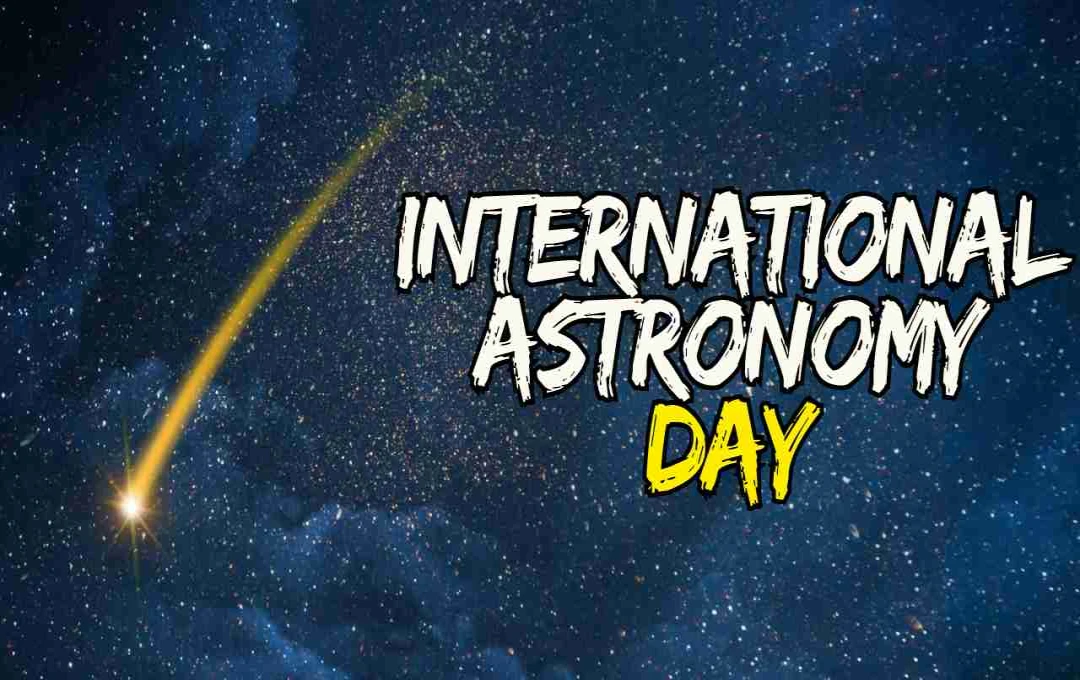On a quiet weekend night, gazing at the sky, have you ever realized how small our world is and how vast and mysterious the universe truly is? This very curiosity and wonder are what drive the celebration of International Astronomy Day. This day provides an opportunity to raise awareness about astronomy, understand the mysteries of the universe, and ignite enthusiasm for the celestial phenomena around us.
The Significance of International Astronomy Day
Astronomy is not just the study of stars and planets; it also helps us understand our place in the universe. International Astronomy Day is celebrated twice a year—once in spring and again in autumn. Its objective is to connect the general public and astronomy enthusiasts, introducing them to the astonishing mysteries of the cosmos.
This day is not just for professional astronomers, but also for children, families, and students, enabling them to observe and learn about the unique world of stars, planets, and galaxies.
Ways to Celebrate Astronomy Day

- Observe the Night Sky
Looking at the open night sky to study stars, planets, and constellations is the simplest and most enjoyable way. You can embark on a journey among the stars with your family or friends, or even alone, using a telescope. This experience awakens a sense of curiosity and wonder within you. - Constellations and Their Mysteries
Knowledge of constellations is extremely important in the study of astronomy. Identifying famous constellations like the Big Dipper, Orion, and Taurus, and learning the stories behind them, is fascinating for both children and adults. Furthermore, you can create your own imaginary constellations and weave stories and myths behind them. - Navigation by Stars
In ancient times, sailors and explorers determined direction using stars. Even today, astronomers study the same technique. Teaching children and students how ancient navigators charted their course by the stars makes Astronomy Day even more exciting. - Birthday Moon Project
Understanding the phases of the moon is an interesting aspect of astronomy. Children can learn how the moon changes by observing its position on their birthday. By comparing it with the current moon phase, they can understand the passage of time and cosmic changes. - Make a Sundial
Not all astronomy is studied at night. The Sun is also an important part of our solar system. Teaching children how time is measured using the Sun's position can be fun and educational. A sundial can be made with the help of a paper plate and a pencil to tell the time of day. - Astronomy Vocabulary
When studying astronomy, it's also important to understand its specific terminology. Cosmic objects and phenomena appear in many places in our daily lives. For example, cosmic terms are used in car names (Ford Taurus, Mercury Comet), chocolate bars (Milky Way), and literary characters (Luna, Sirius). This is both fun and educational for children and adults alike. - Greek and Roman Mythology
Planets are named after ancient Greek and Roman gods and goddesses. Reading these stories helps students understand the blend of mythology and astronomy. This is not only informative but also increases children's interest in history and science.
History of International Astronomy Day

International Astronomy Day was initiated in 1973 by Doug Berger, who was then the president of the Northern California Astronomical Association. He proposed celebrating it by setting up telescopes in cities, so that the general public could also experience astronomy.
In 2006, the day was revised to also be celebrated in autumn, allowing for the experience of constellations and celestial events visible in different seasons. Today, this day is celebrated worldwide, with numerous organizations and astronomy clubs participating.
Why Celebrate International Astronomy Day?
This day offers an opportunity for astronomy enthusiasts and professionals to share their knowledge and passion. Furthermore, it serves as a means to introduce children and families to the fascinating world of astronomy. Through this day, we can:
- Increase curiosity about the universe and astronomy.
- Help ignite interest in science among children and youth.
- Find a balance of knowledge and entertainment with family and friends.
International Astronomy Day introduces us to the vastness and mysteries of the universe. It is an opportunity to foster knowledge, curiosity, and enthusiasm for science. Studying constellations, stories of planets, and solar-lunar activities are both educational and entertaining for children and adults alike. By celebrating it, we not only spread awareness about astronomy but also inspire a love for science within families and society.















